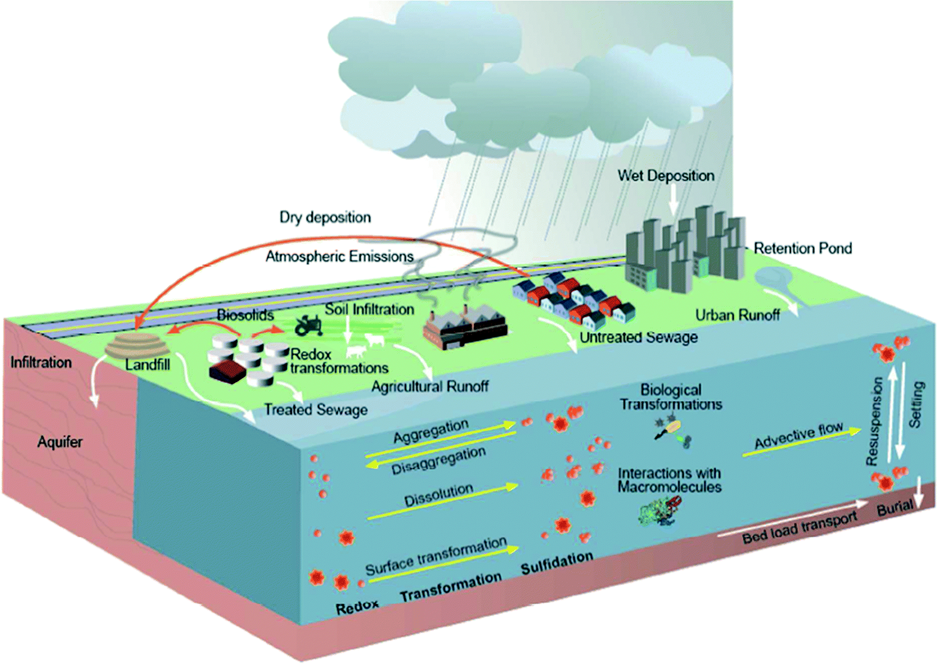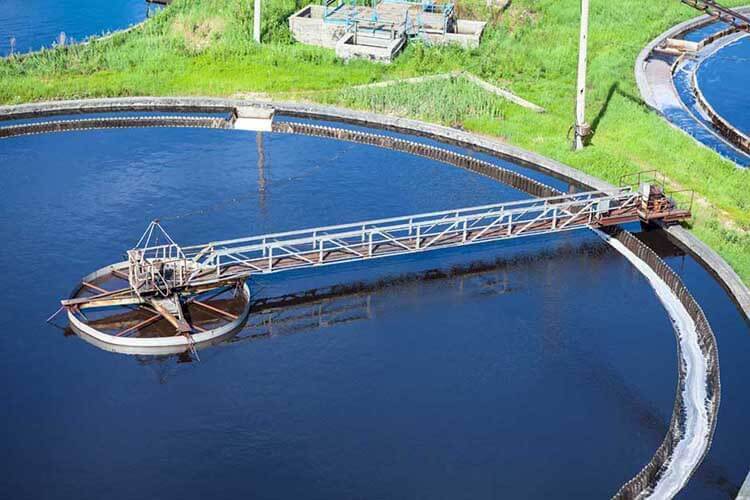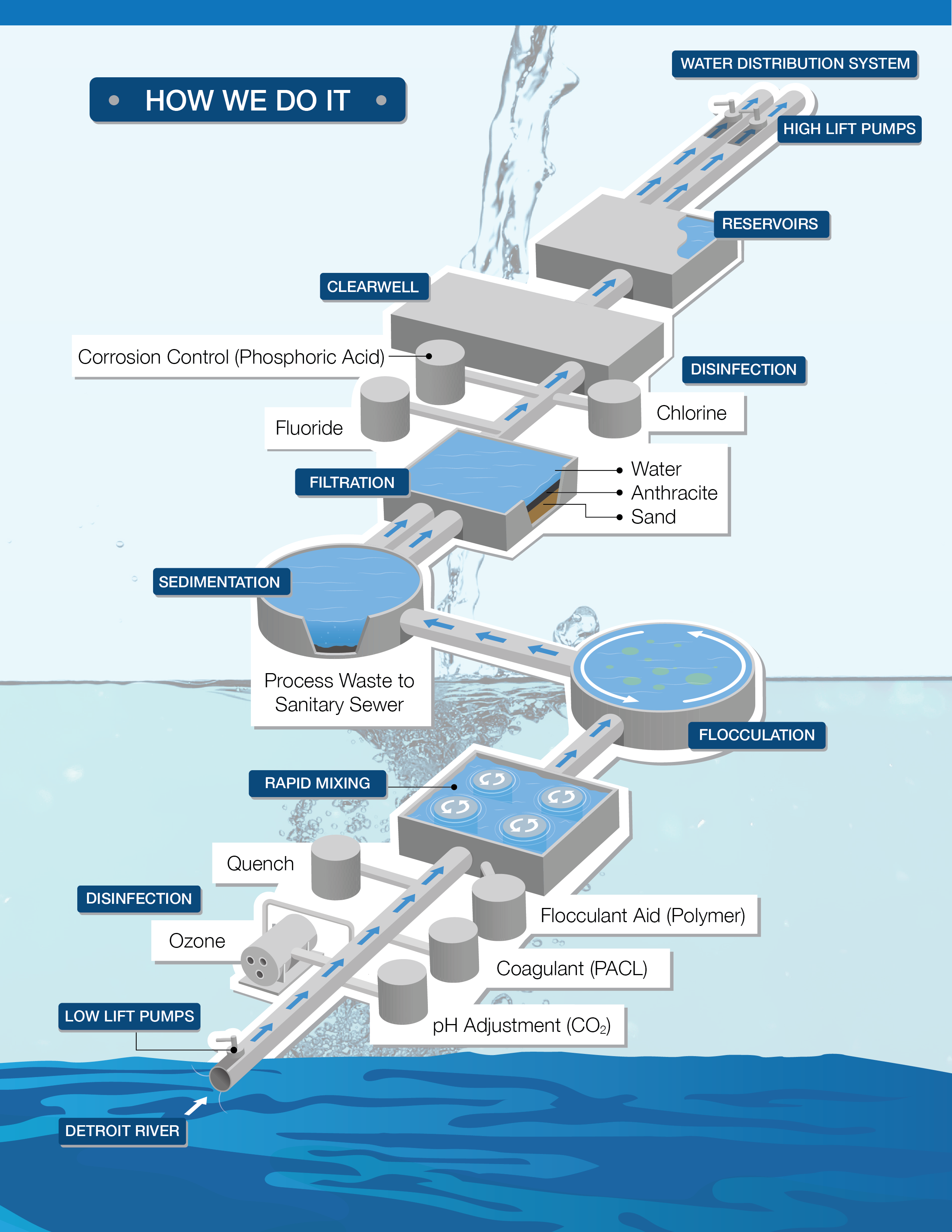Discovering Water Technology Startups: Just How They Change Lasting Solutions
Water Technology start-ups are becoming vital players in the pursuit for lasting options to global water concerns. These firms take advantage of innovative technologies to boost water performance and administration. Their contributions attend to pressing obstacles such as shortage and contamination. However, regardless of their capacity, they face numerous challenges that can affect their success. Understanding these characteristics sheds light on the future of water sustainability and the duty these startups might play fit it.
The Importance of Water Technology in Today's World
As international water shortage magnifies, the relevance of water Technology ends up being increasingly obvious. Water Technology plays a critical function in resolving the difficulties postured by decreasing fresh water resources and enhancing need. It encompasses a wide series of technologies, including innovative filtering systems, wastewater therapy modern technologies, and smart watering solutions. These innovations not only boost the efficiency of water use however additionally advertise sustainable practices across numerous sectors, including agriculture, market, and city growth.
Furthermore, the significance of water Technology prolongs past resource management. It fosters durability versus environment adjustment influences, such as floodings and dry spells, by offering adaptive remedies for water preservation and management. In addition, it supports public wellness by guaranteeing accessibility to safe and clean alcohol consumption water. As the globe encounters expanding water-related difficulties, the combination of innovative water innovations is necessary for cultivating lasting growth and safeguarding water schedule for future generations.
Cutting-edge Solutions From Water Technology Startups
While typical strategies to water monitoring have actually offered their function, a new wave of water tech startups is changing the sector with cutting-edge remedies (Water Technology Startups). These firms utilize innovative innovations to resolve pushing water problems, such as shortage, contamination, and ineffective distribution. Lots of startups utilize fabricated knowledge and artificial intelligence to optimize water use and forecast need, leading to more lasting methods
Additionally, numerous companies concentrate on creating innovative filtering systems that remove toxins and make water secure for usage. Others explore decentralized water therapy technologies, allowing communities to handle their water sources more effectively. Furthermore, some startups are pioneering clever watering remedies that minimize water waste in farming, promoting ecological preservation.
Case Studies: Successful Water Technology Startups
Many water Technology start-ups have actually emerged as leaders in attending to worldwide water obstacles via innovative methods. One significant instance is Xylem, which focuses on water analytics and wise framework to optimize water use and lower waste. Their remedies have been carried out in numerous towns, showing substantial improvements in water administration performance.
Another successful startup, Zero Mass Water, has established solar-powered hydropanels that draw out water vapor from the air, supplying lasting alcohol consumption water in dry areas. Water Technology Startups. This Technology has been released in a number of countries, making sure neighborhoods have access to clean water
AquaVenture Holdings operates a diverse profile of water-as-a-service remedies, attending to water shortage through desalination and wastewater therapy. Their jobs have proven essential in areas dealing with serious water shortages, showcasing the potential of cutting-edge water innovations to produce long lasting, positive influences. These instance research studies highlight the transformative potential of start-ups in the water Technology market.
The Function of Smart Technology in Water Administration
Smart Technology plays a crucial duty in modern-day water monitoring by leveraging IoT applications to maximize source use. Data analytics enhances performance by supplying workable understandings, while remote surveillance solutions enable real-time oversight of water systems. Together, these advancements change just how water is taken care of, advertising sustainability and functional efficiency.
IoT Applications in Water
As water scarcity and management difficulties intensify globally, the assimilation of Net of Points (IoT) applications has become a critical solution in maximizing water resources. IoT Technology facilitates real-time surveillance and evaluation of water systems, enabling a lot more efficient usage and monitoring. Sensing units released in various water frameworks can track quality, flow prices, and leak, offering beneficial data to stakeholders. This information encourages consumers and energies to make enlightened decisions, minimizing waste and enhancing preservation efforts. In addition, smart watering systems utilize IoT to optimize water delivery for agriculture, ensuring that plants receive the ideal quantity of water at the right time. In general, IoT applications are changing standard water monitoring techniques, fostering sustainability and resilience in water resource systems.
Data Analytics for Efficiency
Utilizing data analytics is crucial for enhancing efficiency in water management. Water Technology start-ups are increasingly utilizing advanced analytics to optimize resource allocation and minimize waste. By assessing information from numerous resources, these start-ups can recognize patterns and fads that inform better decision-making. Predictive analytics can forecast water need, permitting utilities to adjust supply as necessary, consequently decreasing scarcities and excess. In addition, real-time information processing enables the prompt discovery of leaks and inadequacies within circulation systems, significantly reducing functional expenses. Data-driven understandings empower stakeholders to apply targeted conservation strategies, cultivating sustainable techniques. Fundamentally, incorporating data analytics right into water management not just streamlines procedures but likewise advertises long-lasting sustainability in water resource usage.
Remote Monitoring Solutions
While standard water management systems often battle with inefficiencies, remote surveillance solutions are transforming just how water resources are managed. These innovative technologies allow real-time information collection and analysis, enabling stakeholders to keep track of water top quality, flow prices, and use patterns from afar. Using sensing units and IoT devices, remote tracking supplies prompt insights that help with positive decision-making. This change not just enhances operational effectiveness yet additionally promotes sustainability by decreasing water waste and enhancing source appropriation. Additionally, remote tracking systems can recognize potential issues before they escalate, consequently minimizing the risk of contamination or facilities failure. As water Technology startups remain to establish these remedies, the sector is positioned for substantial developments in sustainable water management practices.
Difficulties Dealing With Water Technology Startups
Water Technology startups come across substantial obstacles that can hinder their growth and success. Secret concerns include safeguarding adequate funding, maneuvering through complicated governing atmospheres, and competing in a crowded marketplace. These challenges require tactical preparation and technology to conquer.
Financing and Financial Investment Challenges
Development in water Technology holds immense potential for dealing with international obstacles, startups in this industry typically deal with considerable financing and financial investment difficulties. Several capitalists remain mindful, viewing the water sector as risky due to its intricate regulative landscape and lengthy development timelines. In addition, startups often have a hard time to demonstrate instant success, which can hinder prospective backers. Traditional equity capital may forget water innovation, favoring markets with quicker returns, such as technology or durable goods. Securing gives and government financing can be lengthy and competitive, more complicating economic security. As an outcome, lots of cutting-edge water Technology startups find themselves in a precarious placement, calling for innovative funding approaches to browse these monetary obstacles and achieve their goals
Regulatory Compliance Issues
Steering governing compliance is a substantial difficulty for start-ups in the water Technology market, as they have to face a myriad of regional, nationwide, and worldwide policies. These laws usually encompass water quality criteria, environmental defense regulations, and security protocols, which can differ widely throughout territories. Start-ups might find it tough to browse this facility landscape, specifically when scaling operations or getting in new markets. The expenses connected with compliance can be considerable, diverting sources far from innovation and product advancement. In addition, hold-ups in getting essential authorizations or accreditations can prevent development and market entry. A durable understanding of governing structures is necessary for these startups to guarantee lasting operations and avoid possible legal consequences.
Market Competitors Characteristics
As water Technology startups arise in an affordable landscape, they face various difficulties that can hinder their development and innovation. Developed companies commonly control the market, leveraging sources and experience to maintain their placements. Start-ups struggle with minimal funding, which limits research study and development abilities, making it challenging to contend on Technology and pricing. In addition, the rapidly advancing nature of water innovations demands continuous adjustment, additional stressing startup sources. Regulatory obstacles can make complex market access, as compliance with ecological standards is vital yet expensive. Finally, drawing in experienced ability in a niche area offers another barrier, as larger companies may offer even more appealing work bundles. Subsequently, these factors create a complex atmosphere for water Technology start-ups intending to do well.

The Future of Water Technology and Sustainability

The future of water Technology will likely concentrate on incorporating fabricated knowledge and data analytics to optimize water distribution and use patterns. By taking advantage of real-time data, firms can anticipate shortages and take care of sources better. Lasting techniques will certainly end up being a keystone of the market, urging circular economies where water is recycled and treated. Ultimately, the continued development of water Technology will be essential in producing resilient infrastructures efficient in satisfying the obstacles postured by environment change and population growth while advertising ecological stewardship.
Frequently Asked Concerns
What Are the Key Metrics for Evaluating Water Technology Startups?
Secret metrics for examining water Technology start-ups consist of market potential, click here scalability, consumer acquisition costs, income growth, technology advancement, governing conformity, environmental impact, competitive advantage, and team proficiency, all vital for determining long-lasting practicality and success.
Just How Can People Support Water Technology Innovations?
People can support water Technology innovations by purchasing start-ups, supporting for policy adjustments, participating in neighborhood efforts, sharing knowledge regarding lasting techniques, and advertising understanding of water concerns through social media sites and regional events.
What Are Usual Financing Resources for Water Technology Startups?
Typical financing sources for water technology startups consist of equity capital, government gives, crowdfunding platforms, angel investors, and company collaborations. These financial methods assist facilitate innovation and development in sustainable water management technologies.

Which Industries Advantage A Lot Of From Water Technology Advancements?
Industries such as farming, energy, manufacturing, and metropolitan services benefit considerably from water Technology developments. These innovations boost water effectiveness, lower prices, and advertise sustainable methods, eventually adding to ecological conservation and source management.
Are There Any Type Of Regulative Challenges Certain to Water Modern Technology?
Yes, water Technology encounters governing obstacles, including conformity with environmental criteria, allowing processes, and varying local guidelines. These intricacies can hinder development and slow the implementation of brand-new technologies in the water administration field.
Water Technology start-ups are arising as important gamers in the quest for sustainable options to global water issues. As global water deficiency magnifies, the relevance of water Technology comes to be significantly noticeable. Others check out decentralized water therapy innovations, allowing communities to manage their water sources more effectively. Another effective start-up, Absolutely no Mass Water, has established solar-powered hydropanels that draw out water vapor from the air, supplying lasting alcohol consumption water in arid areas. Their projects have proven vital in regions dealing with severe water shortages, showcasing the capacity of innovative water technologies to develop lasting, favorable impacts.